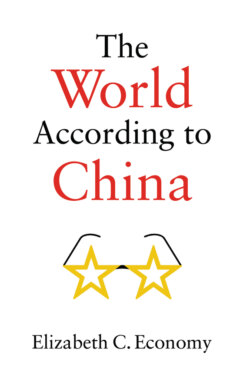Читать книгу The World According to China - Elizabeth C. Economy - Страница 13
Wolves at the Door
ОглавлениеWhile the world lauded China’s leadership in providing PPE, much of the goodwill Beijing earned evaporated as Chinese officials began to adopt a more coercive and combative form of diplomacy colloquially referred to as “wolf warrior diplomacy.” The latter term reflected the tag line from the second of two Chinese blockbuster Wolf Warrior movies in which elite Chinese forces triumph over foreign mercenaries and others: “Even though a thousand miles away, anyone who affronts China will pay.”52 The same diplomats who had earlier requested that other countries not advertise their assistance to China now trumpeted their provision of PPE to these same countries and insisted on public displays of gratitude. While Italian prime minister Guiseppe Conte complied, others, such as German chancellor Angela Merkel, stressed the two-way nature of pandemic assistance: “The European Union sent medical equipment to China [when] China asked for help at that time. What we are seeing here is reciprocity.”53 The wolf warrior diplomats also weaponized the country’s control over PPE and access to China’s vast market to try to coerce countries into aligning their interests with those of China. China reportedly told France that ample PPE would be forthcoming if the latter bought Huawei 5G equipment. And when Australian prime minister Scott Morrison called for an investigation into the origins of the virus in April, China’s ambassador to the country suggested it would pay a steep economic price: “[M]aybe the ordinary [Chinese] people will think why they should drink Australian wine or eat Australian beef.”54 Shortly afterward, China banned Australian beef imports and placed tariffs on Australian barley, following this up in fall 2020 with bans on Australian coal and wine, as well as recommendations to Chinese tourists not to travel to Australia.55
Chinese foreign affairs officials and the media also tried to deflect attention from China’s role in the pandemic by spreading disinformation about other countries’ management of it. Ministry of Foreign Affairs spokesman Zhao Lijian tweeted: “It might be the US army who brought the epidemic to Wuhan. Be transparent! Make public your data! US owe [sic] us an explanation!”56 The Chinese embassy in Paris published an article on its website claiming that French healthcare workers had abandoned their jobs in nursing homes and left the residents to “die of starvation and illness.” And at one point, a number of Chinese media organizations and government officials tweeted out a video that purported to show Italians chanting “Grazie, China,” with China’s national anthem playing in the background. It later emerged that the Italians were cheering for their own healthcare workers.57
Chinese foreign minister Wang Yi explicitly encouraged such diplomatic hardball, claiming: “We never pick a fight or bully others. But we have principles and guts. We will push back against any deliberate insult, resolutely defend our national honor and dignity, and we will refute all groundless slander with facts.”58 While such nationalistic rhetoric had its supporters within China, it came at a steep reputational cost outside the country. International media coverage portrayed Beijing’s mask diplomacy as bullying, and foreign governments lost faith in China as a reliable source of PPE. Concern over Chinese-manufactured PPE was also compounded by widespread reports of substandard products. Health officials in Spain, the UK, Turkey, the Philippines, the Netherlands, and Finland, among other countries, complained that the Chinese masks lacked adequate filters, testing kits were inaccurate, and disinfectants were fake.59 The Netherlands alone recalled 600,000 faulty Chinese-made masks. In the wake of both the quality issues and the coercive nature of Beijing’s mask diplomacy, countries began to discuss the need to reorient their supply chains away from China.
